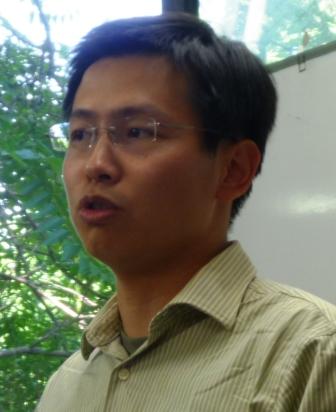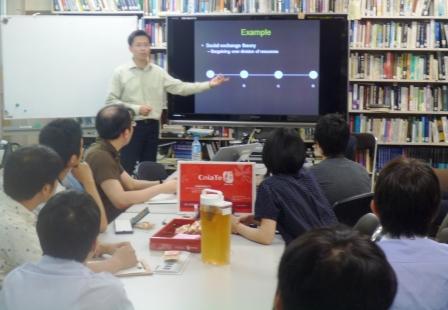※本ワークショップは、北海道大学社会科学実験研究センターとの共催で行われました。
スピーカー: Dr. Yen-Sheng Chiang (University of California, Irvine, United States), Dr. Wu, Chih-In (Institute of Sociology, Academy Sinica, Taiwan)
日時: 2011年7月21日(木) 14:00~16:00
場所: 北海道大学文学研究科E204
参加者: 高橋伸幸、西部忠、高橋泰城、結城雅樹、山岸俊男、亀田達也、大沼進、ほか20名(計27名)
タイトル: Network Structural Attributes and the Emergence of Prosocial Behavior
内容:
In the past decades we have witnessed a proliferation of scientific research on social behavior embedded in networks, ranging from social exchange theory in sociology, to the evolutionary account of cooperation in biology, to the dynamics of trade in economics. This kind of work shows how network structure drives the evolution, contagion or diffusion of social behavior across individuals, assuming that individuals adapt to or imitate from behavior of network neighbors. At the micro level, this approach assumes, however, individuals are either unaware of or unconcerned with their interaction partner's network position, therefore making their decision-making independent of network-structure-related attributes. A recent emergence of studies has relaxed this assumption by taking into account individuals' cognitions of social network environment. The new premise stimulates research on how perception of network structure influences the emergence of prosocial behavior, such as cooperation, trust and altruism. In this talk, we introduce this line of work through examples of our current research. We begin with an evolutionary simulation model that investigates whether network-attribute conditioned strategies help sustain cooperation in networks. We then briefly discuss another research proposal that attempts to empirically assess people's sharing behavior stimulated by different kinds of cues of social distance.
 
▲ ワークショップ一覧
|